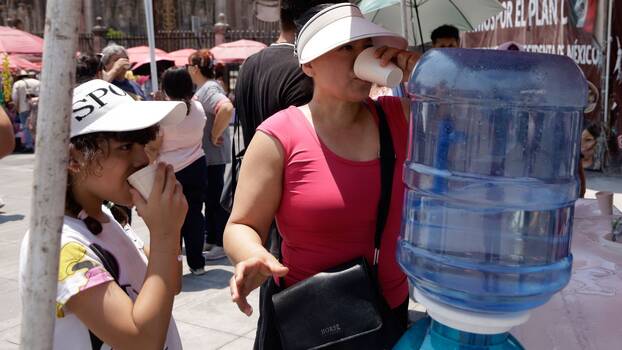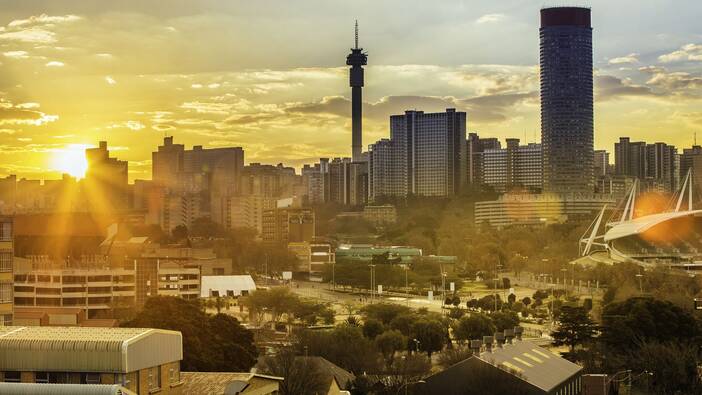
Temperature recordings show that 2023 was 1.45°C warmer than the pre-industrial average, making it the hottest year on record by a considerable margin. This threatens to jeopardize the Paris Agreement and its objective stay within 1.5° of warming. In a recent survey amongst climate scientists, many of whom were authors of the Intergovernmental Panel on Climate Change (IPCC), over half indicated that they believed global average surface temperature increases of over 3°C until the end of the century were likely.
David Williams directs the Rosa Luxemburg Foundation’s Climate Justice Programme in New York.
With every increase in global temperature, the impacts of climate change also increase. This year alone has witnessed severe heatwaves in India, in Mexico, or the Philippines, catastrophic storms in the US, destructive flooding in Afghanistan and Germany, and deadly wildfires in Chile.
Climate-induced extreme events affect socio-economic development, as is already being felt in various countries across the world, predominantly those that have contributed almost nothing to the climate crisis. Globally, the richest 1 percent contribute as much to climate change as two-thirds of humanity. This inequality in terms of emissions and impacts is felt not only between countries, but within them. Cities offer an illustration of this inequality, not only in terms of accumulation of wealth and consumption, but also in terms of who is most affected by climate change.
Over half of the global population, approximately 4.4 billion people, live in cities — a figure that is projected to increase over the coming decades. Growth rates are particularly pronounced in the Global South, where 75 percent of the world’s urban population already resides. The impacts of climate change on cities have received much attention from the science and policy communities lately, with the IPCC currently drafting a Special Report on Climate Change and Cities to be completed in 2027.
As the impacts of climate change rapidly intensify, so will urban distribution struggles centred around access to jobs, land, adequate housing, and the provision of social services. If urban governments fail to plan accordingly, those already marginalized on the basis of income, race, religion, gender, or class will stand to lose the most. This dossier aims not only to raise our collective awareness of these intersectional dynamics, but also identify approaches and strategies around which we can organize, from the local to the national and international level.
An essay by ActionAid grounds the dynamics of urban climate change impacts in the historical context of colonialism, and shows how this affects the formation and expansion of cities across the Global South today. Digital storytelling is utilized to display scientific background on climate change and urbanization trends, as well as detailing the connection between the housing crisis and climate crisis. The interview with a researcher from the university of Zürich shows how climate finance for cities of the Global South is increasingly been financialized, and how this affects the governance of the cities and the distribution of resources.
A number of case studies from across the world show where and how climate change impacts are felt, and how local responses are being shaped. An essay from Argentina introduces the concept of urban extractivism and illustrates how climate change intersects with spatial injustice. The impacts of climate change on marginalized communities is illustrated in an essay from Brazil, where flooding is increasing the risk of vector-borne diseases, and together with an intensification of droughts and heatwaves constitutes a new form of environmental racism. Another essay draws on the history of politically contested nature of water provision in Mexico City, along with the paradox between water abundancy and water scarcity, which influences how neighbourhood organizations fight for environmental justice.
Coastal erosion in Senegal, which is increasing with sea-level rise, intersects with other forms of environmental injustice such as air pollution from transport and inadequate housing. This essay tells the story of how local communities are impacted, presents governmental response plans and discusses how these could be improved. The colonial legacy of apartheid and how this interlinks with contemporary access to green space in times of heat stress is detailed in an essay from South Africa.
With a vast informal sector, workers in India are disproportionately impacted by the effects of climate change, and by heat stress in particular. A further essay discusses how urban governments might respond to these threats in the face of rapid urbanization, and stresses the importance of including local governments in the development of national and international climate action plans.
The Global South is not the only place where marginalized communities are disproportionately affected by rising heat and more frequent extreme events. A piece from the US tells the story of a neighbourhood organization’s engagement with local communities in New York to advocate for climate justice at the city level, connecting these issues with the intersectional struggles against rising rents, gentrification-induced displacement, and racial segregation.
Ultimately, this dossier is about taking action. While each city and its specific problems are unique, there are commonalities that allow us to address these issues on a more structural level. A recent Rosa Luxemburg Foundation study reflects on the global urban policy landscape, and offers some ideas for civil society organizations on how to increase advocacy efforts in international policy-making processes.
